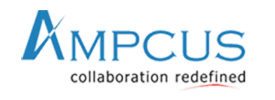Not Authorized
You are currently not authorized to access this section.
Please contact your Administrator to change your authorization settings.
Please contact your Administrator to change your authorization settings.
Data Engineer - Data Analytics / BI
Santa Monica, CA
Job Description
REMOTE. Must have 5 yrs exp in design, development and support of terabyte scale data warehouses. Strong SQL programming skills. Strong understanding of relational and dimensional modeling, data mining and ETL design processes. See attached for additional details.
| SUMMARY STATEMENT: The Data Engineer is a key role in technology initiatives to advance health informatics and analytics in the health sciences by advancing the usability, performance, and overall architecture of the enterprise data warehouse. This role develops data extraction, transformation, and load processes between source and target data structures, and supports junior developers on development of data warehouse, in collaboration with data architecture and other stakeholders. The developer is also an active participant in data modeling and data mapping exercises. Candidate is expected to write efficient and highly performant code that is scalable and have a thorough knowledge of internal workings of SQL Server and other database systems. The Data Engineer is a key role in supporting UCLA Health Sciences initiatives that drive clinical, financial and operational improvement. The incumbent is expected to understand the clinical, financial and operational issues to be solved and to determine targeted individual and/or linked healthcare data sets (structured and unstructured). |
|||||||||||
| TYPE OF SUPERVISION RECEIVED: The Data Engineer receives overall objectives, deliverables, and priorities from the Manager Data Architecture. The individual is expected to determine the most effective method to accomplish assigned tasks within the timeframes allowed, and to work independently with minimal supervision. The individual obtains review and approval of key deliverables from the manager and others as required and is expected to seek guidance on balancing competing priorities or issues. |
|||||||||||
| Amount of Time | Duties and Tasks | Rating | Comments | ||||||||
| D | M | E | |||||||||
| |
KEY RESPONSIBILITIES
|
|
|
|
|||||||
| |
UCLA C-I-CARE/Patient Experience Practices: MY COMMITMENT TO CARE
|
|
|
|
|
||||||
INSTITUTIONAL AND/OR PROFESSIONAL STANDARDS
|
|
|
|
||||||||
PERFORMANCE IMPROVEMENT
|
|
|
|
||||||||
OTHER DUTIES
|
|
|
|
||||||||
|
|||||||||||
Ampcus is an Equal Opportunity Employer. All qualified applicants will receive consideration for employment without regard to race, color, religion, sex, sexual orientation, gender identify, national origin, age, protected veterans or individuals with disabilities.
Job Summary
Company
Start Date
As soon as possible
Employment Term and Type
Regular, Full Time
Required Experience
5+ years
Email this Job to Yourself or a Friend

